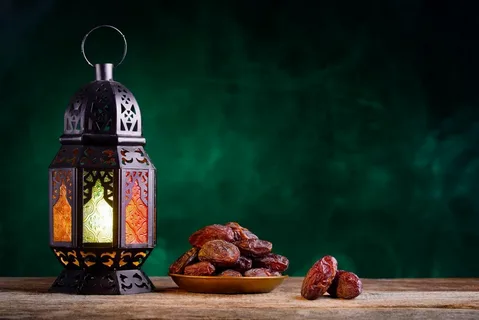Ramadan is the holiest month in Islam, observed by millions of Muslims worldwide. It is a time of spiritual renewal, self-discipline, and increased devotion to Allah. But what is special about the month of ramadan? More than just a month of fasting, it is a period of reflection, prayer, charity, and strengthening bonds with family and community.
The Spiritual Significance of Ramadan

Ramadan is a sacred time that brings Muslims closer to Allah. It is an opportunity to seek forgiveness, purify the soul, and renew faith. The spiritual atmosphere of Ramadan encourages self-reflection and personal growth, allowing individuals to focus on their relationship with their Creator.
what is special about the month of ramadan
The month of Ramadan is very special for Muslims for religious, spiritual, and social reasons. Here’s what makes it unique:
Fasting: The Core of Ramadan
Fasting during Ramadan, known as Sawm, is one of the Five Pillars of Islam. From dawn (Suhoor) until sunset (Iftar), Muslims refrain from eating, drinking, and other physical needs.
The Purpose and Benefits of Fasting
Fasting is not just about abstaining from food and drink; it teaches self-control, patience, and empathy for the less fortunate. It also helps cleanse the body and mind, strengthening one’s faith.
Who Is Required to Fast?
Fasting is obligatory for all adult Muslims, with exceptions for children, the elderly, pregnant or nursing women, travelers, and those with health conditions.
The Revelation of the Quran
Ramadan is the month in which the Holy Quran was revealed to Prophet Muhammad (PBUH). The significance of this revelation makes Ramadan a time for Muslims to recite, understand, and reflect on the Quran’s teachings.
Taraweeh Prayers
Muslims engage in Taraweeh prayers at night, which are special prayers performed in congregation at mosques.
Charity (Zakat and Sadaqah)
Giving charity is highly encouraged during Ramadan. Zakat (obligatory charity) and Sadaqah (voluntary charity) help those in need and increase spiritual rewards.
Acts of Kindness and Generosity
Ramadan teaches compassion and encourages acts of kindness, such as feeding the hungry and helping neighbors.
Laylat al-Qadr: The Most Blessed Night
Laylat al-Qadr, or The Night of Decree, falls within the last 10 days of Ramadan. It is a night of immense blessings, where prayers and supplications are highly rewarded.
The Last 10 Days of Ramadan
The last 10 days of Ramadan are the most spiritually significant. Many Muslims engage in Itikaf (spiritual retreat), dedicating their time to worship and seeking forgiveness.
Health Benefits of Fasting

Fasting during Ramadan has several scientifically recognized health benefits. Here are some key advantages:
- Weight Management: Fasting can help regulate calorie intake, leading to weight loss by promoting fat metabolism. It encourages the body to utilize stored fat for energy.
- Improved Blood Sugar Control: Intermittent fasting can enhance insulin sensitivity and help regulate blood sugar levels, reducing the risk of type 2 diabetes.
- Detoxification: A fasting period allows the digestive system to rest and can support the body’s natural detoxification processes by eliminating waste and toxins.
- Cardiovascular Health: Fasting has been linked to lower cholesterol levels, reduced blood pressure, and improved circulation, all of which contribute to better heart health.
- Digestive System Regulation: Giving the gut a break from continuous digestion can promote better digestion, reduce bloating, and support the balance of gut bacteria.
- Immune System Support: Studies suggest that fasting may stimulate the production of new white blood cells, enhancing immune function and promoting cellular repair.
- Reduced Inflammation: Fasting has been shown to lower markers of chronic inflammation, which is associated with various health conditions such as arthritis and metabolic disorders.
- Improved Cognitive Function: Fasting can increase levels of brain-derived neurotrophic factor (BDNF), a protein that supports brain health, memory, and cognitive function.
- Sleep and Energy Regulation: A structured eating schedule can improve sleep patterns and energy levels by regulating metabolism and hormone production.
- Behavioral and Dietary Discipline: Fasting can help break unhealthy eating patterns, reduce cravings, and encourage more mindful food consumption.
The Joy of Eid al-Fitr
Eid al-Fitr, also known as the Festival of Breaking the Fast, is a significant celebration for Muslims worldwide. It marks the end of Ramadan, a month of fasting, prayer, and self-discipline. The day is filled with religious, social, and cultural traditions that bring families and communities together.
- Religious Significance: Eid begins with a special prayer (Salat al-Eid) performed in mosques or open areas. It is an opportunity for Muslims to express gratitude for completing Ramadan and seek blessings for the future. Before the prayer, Muslims give Zakat al-Fitr, a form of charity, ensuring that everyone can participate in the celebration.
- Family and Community Gatherings: Eid is a time for reuniting with family and friends. People visit loved ones, share meals, and strengthen social ties. It is also a time for resolving conflicts and fostering goodwill among relatives and neighbors.
- Festive Foods and Traditions: A variety of traditional foods are prepared, often depending on local customs. Sweets and desserts play a central role, with dishes like Ma’amoul, Baklava, Sheer Khurma, and Kunafa being popular in different regions.
- Gift-Giving and New Clothes: Children receive Eidi (money or gifts) from elders, adding to the excitement of the day. Many people wear new or special outfits, symbolizing renewal and joy.
- Acts of Kindness and Charity: Beyond family celebrations, Eid is also about giving back. Muslims are encouraged to continue acts of charity and kindness, extending generosity to those in need.
FAQs
Why do Muslims fast during Ramadan?
Fasting is a form of worship that helps Muslims develop self-discipline, gratitude, and empathy while seeking closeness to Allah.
What happens if someone eats by mistake while fasting?
If someone eats or drinks unintentionally, their fast is still valid. They should continue fasting for the rest of the day.
Can non-Muslims participate in Ramadan?
Non-Muslims are welcome to observe and participate in aspects like breaking fast with Muslims or learning about the significance of Ramadan.
What should I do if I cannot fast due to illness?
If fasting poses a health risk, one is exempt. They can either make up for the missed fasts later or offer fidya (charitable compensation).
How can I make the most of Ramadan?
By increasing worship, reciting the Quran, engaging in charity, and improving personal character, one can maximize the blessings of Ramadan.
Conclusion
Ramadan is a transformative month that strengthens faith, builds character, and promotes unity. It is a time for reflection, prayer, and generosity, leaving a lasting impact on those who observe it.


